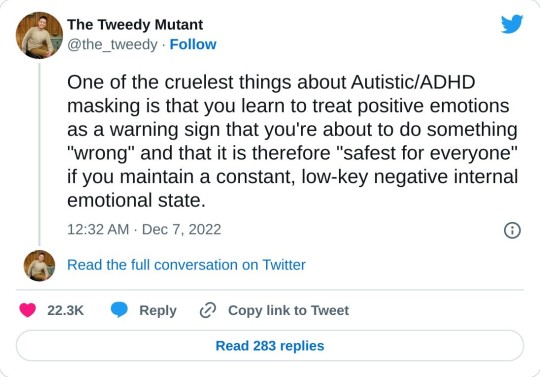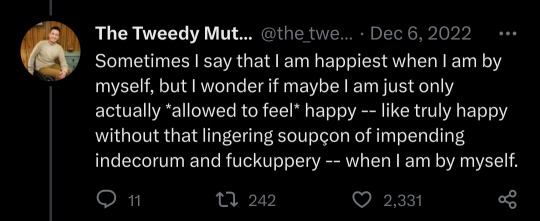Text
I guess the worst thing about worldbuilding is making final choices. I'd always wanted to write about a world that was a giant cosmic tree; but the idea of a space whale was also quite compelling.
The final choice I've made is rather semiotic in nature: to blur the real shape, representing it as a tree, a space creature or some other thing (a ridiculous mineral ball with hot liquid core revolving around a star??) depending on the worldview of a given character. Hope to tie it all into a single "material" concept later in the process, but the current prototype layout is fun to meddle with, even if imprecise:


The second image is Dalle, based on my drawing. I really enjoy prompting with my own artwork, the result is usually much more exact, however weird the idea.
30 notes
·
View notes
Text
So Al Green was pretty much one of the most amazing soul artists ever. And the albums hold up like crazy! Even the 80s Christian stuff is great music. Seems he was also a typical christian woman beater liar piece of shit violent bastard. But that voice. Those songs. Just wow.

0 notes
Text
I remember a really formative interaction I had as a teenager. Well actually it wasn't formative, I was already formed. But it was... vindictory? It was a moment when I realized in a crystal clear fashion something I already implicitly believed.
I was talking to a friend of a friend of my parents, and she had been to Japan a number of times, and I was interested in Japan, and so we were talking about that. And we were talking about Japanese food, and somehow the topic of spicy food came up. And she was saying how it was hard to find spicy food in Japan. And she struggled for a moment to express why this was. She hesitated, and said something like "...I'm not sure how to say this, I don't want to stereotype, but... the Japanese, uh, the Japanese palate is not very, well, it's not very amenable to spicy food, I mean..." and she sort of looked at me expectantly for social approval of this potentially non-PC(?) comment, but instead of accepting or rejecting it, I simply suggested to her "you mean spicy food isn't very popular in Japan?". And as soon as I did she was like, "yes! yes! That's exactly what I'm saying!" and the conversation moved on.
In that moment I realized something like, well. We can chose to see and conceptualize the world in different ways, and there are certain common ways that seem deeply flawed to me, and I have a better way and I'm going to use it. Just, setting all social or political implications aside, you can think about the world in terms of essences or you can think about the world in terms of descriptions. You can add extra features to your model, develop a richer ontology of... classes and types and whatnot, or you can not do that, you can stick to a weak ontology and just describe. What is "the Japanese palate"? I don't know. What you mean to say is that spicy food is not popular in Japan.
And when you do this, you know, when you just describe, when you avoid essences, you also demystify. There's nothing here. I mean, there's something here, there's a fact, but it's not of any more import than it is literally of. Monster truck rallies aren't popular in New York and spicy food isn't popular in Japan. Things are just things, people are just people, events are just events. It's very hard to articulate what I mean here in language, because as all my thoughts this one is principally non-linguistic. I'm not sure I'm doing it justice right now but I'm at least approximating it. You don't have to, like. You can just.
I guess that's what it is. This is also why I don't like the term "the West", unless you're using it in some really circumscribed way. Because, what is this? What is this way of speaking, speaking in terms of essences and needless abstractions and muddled, conceptually loaded narratives when you could just say, you could just describe. You don't need all this cruft. And moreover it does a disservice, it does a disservice to people and the world, both of which are real and actual and not made of cruft and nonsense as you purport them to be. Well anyway.
1K notes
·
View notes
Text
Godard's "King Lear (1987) was just great! Fun, silly, serious. I love a good art film that is both an essay, a Shakespeare adaptation, and a post-apocalyptic conspiracy story, with strange professors and mad theories about the nature of reality.

I think the central point that I find so important (and full of pleasure) is that these fractured works open holes in the "narrative" to jolt us out of the trap of "stories." Yes, stories are vital, inevitable, we can not live without them (in any way that resembles typical human societies). But they can so easily become traps or prisons.
Also, it looks beautiful in a way that isn't reduced to any immediate advertisement aesthetic.
1 note
·
View note
Text

Original post was made unrebloggable so I'm reposting the link. Click through for the whole thread.

21K notes
·
View notes
Text
Spent a half houre watching a screen sacver.
I am lost.
I lost any chance
My life is shit
I never did any
I never saw any
I fcuked all up
1 note
·
View note
Text
One of those insidious little things I notice sometimes is how much the window of 'appropriate for children' content has shrunk within the past 20 years. The range of things it is socially acceptable to show a 10-year-old has never been more limited, and it's happened incredibly quickly.
Take, for instance, Star Trek: TNG. I grew up watching TNG. I was a little young for it as it was airing, but it got syndicated almost immediately and they would show an episode most weekday evenings on the Space Channel, and I'd watch it with my lifelong Trekkie mom. This was a very common thing. I was by no means unusual for watching Star Trek as a child.
Star Trek: TNG has lots of sex in it! It's never explicit (unless you have a particularly niche interpretation of some of the borg stuff) but on many an occasion you'll have a few characters doing a bit of making out followed by a closing door or fade to black, and then they wake up in bed together. If you know what sex is, you know that is what is being implied here. Even my 8-year-old self, whose understanding of the subject mostly came from books of ancient mythology that used words like 'ravish' and 'the pleasures of the couch' a whole bunch, could tell that what was happening was sex.
And I am not bringing this up as a 'see, I watched all this inappropriate stuff and I turned out just fine!'. I'm bringing it up to argue that TNG's level of sexual content is not inappropriate for children (I'm not using the legalese 'minors', because I think that lumping children and teenagers together in this conversation would make it nonsense. Star Trek is obviously appropriate for teenagers. Don't use 'minors' when you mean either children or teens, it just muddies the waters).
The point is that Star Trek: TNG was very obviously designed to be watched by children and teenagers. There's a whole character in the main cast whose role in the show is to be an audience insert for children and teenagers. The moral tone of TNG, its occasional dips into 'don't do drugs, kids' type messaging, and its general avoidance of graphic violence all scream 'we are designing this with an audience of children - but not just children - in mind'. It's a family show. It's supposed to be watched by the whole family.
Which means that, until at least the end of the 90s, this amount of sexual content was generally considered appropriate for kids to see. It's not pornographic - it's not even graphic. Maybe the very most conservative parents wouldn't let their kids watch TNG, but that might have had more to do with all the socialism and atheism.
So, why did that change? Why do we now have such a strong bullwark between 'things kids are allowed to know about' and 'things for GROWN UPS ONLY 18+ Minors DNI', and why have we relegated even the most discreet references to sex to the second category only?
And the next time you find yourself experiencing that knee-jerk 'think of the children' reaction, consider: would what you're looking at have been ok on Star Trek: TNG in the 90s?
26K notes
·
View notes
Text

Victoria Crowe (British, 1945), Garden Flowers. Ink and watercolour, 15 1/4 x 22 3/4 in.
94 notes
·
View notes
Text
Had a long vivid dream of being in a stealth videogame. Quite stressful.
0 notes
Text
(person who learned from childhood to make themself as small and unimportant as possible to avoid being a burden) yeah its okay we dont have to do my thing if you dont want i dont mind
68K notes
·
View notes
Text
Mercury Rising (1998)
Really dull. And incoherent. Hard to believe this came out the same year as "Enemy of the state." Same basic idea: innocent civilians unwittingly caught up in the politics of secret police surveillance overreach. But while in the Tony Scott movie every part of that is made in to suspenseful sequences, here nothing makes sense, nothing connects; not as character motivations, not at a structural level of the plot. The drama part (Willis + kid) is under-cooked, and the suspense part is almost non existent.
Also. The autism part. Well meaning, I think. But not good.

Just your typical everyday autist-about-town moment.
0 notes
Text
It' s really hard now actually to keep going.
0 notes
Text

Francesco Clemente (Italian, b. 1952), Winter Flowers XIII, 2016–21. Pigment on canvas, 152.4 x 152.4 cm
395 notes
·
View notes












